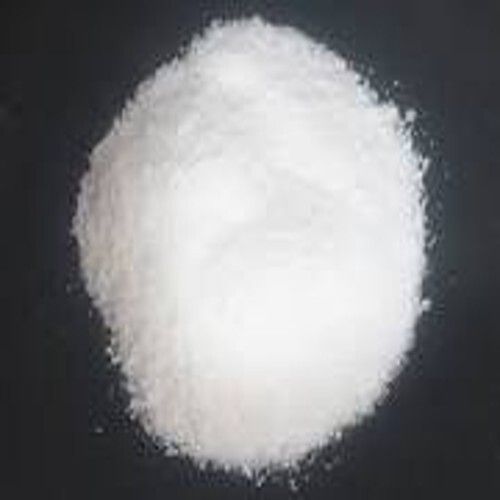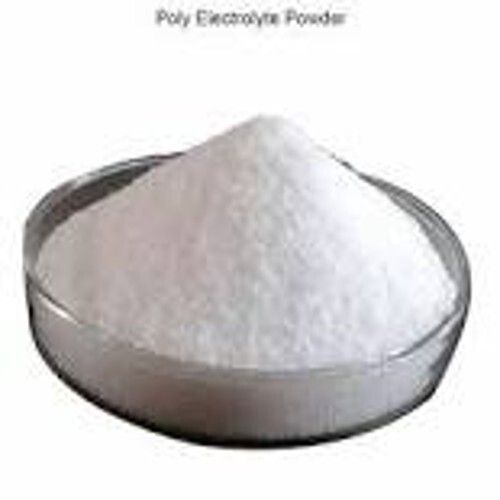Non ferric Alum Powder

X
Non ferric Alum Powder Price And Quantity
- 18 INR/Kilograms
- 50 Kilograms
- 18.00 - 20.00 INR/Kilograms
Non ferric Alum Powder Trade Information
- Vadodara, Gujarat
- 20000 Kilograms Per Day
- 2 Days
- Yes
- Sample costs shipping and taxes has to be paid by the buyer
- HDPE bag
- All India
- UDYAM-GJ-24-0107312
Product Description
Non-ferric alum powder, also known simply as alum, is a chemical compound primarily composed of potassium aluminum sulfate. It's widely used in various industrial and domestic applications. Hereïs a detailed look at non-ferric alum powder:
Non ferric Alum Powder Supplier in india
Non ferric Alum Powder Supplier in Gujarat
Non ferric Alum Powder Supplier in Vadodara
-
Composition: Non-ferric alum powder is typically formulated with potassium aluminum sulfate, represented chemically as KAl(SO4)2ï12H2O. This compound forms large, colorless crystals that dissolve readily in water.
-
Properties:
- Solubility: Alum is highly soluble in water, which makes it convenient for various applications where aqueous solutions are required.
- Crystalline Form: In its pure form, alum forms large, octahedral crystals.
- Acidity: Alum solutions are mildly acidic due to the presence of sulfate ions.
-
Uses:
- Water Treatment: Alum is commonly used as a coagulant in water treatment plants to clarify water by precipitating impurities such as suspended particles and colloidal matter.
- Food Industry: It is used as a food additive (E number E522) primarily as a firming agent and for pickling.
- Cosmetics: Alum is used in some cosmetic products such as aftershave lotions and deodorants for its astringent and antibacterial properties.
- Tanning: Historically, alum has been used in the tanning industry to treat animal hides.
-
Function in Water Treatment:
- Alum works by forming a gelatinous precipitate with impurities in water, such as clay, silt, and organic matter. These precipitates settle out, allowing clearer water to be separated from the solids.
- It is effective in neutralizing the negative charges on suspended particles, facilitating their aggregation and sedimentation.
-
Safety Considerations:
- Alum is generally considered safe for its intended uses when used in appropriate concentrations.
- In food and cosmetic applications, regulatory bodies set limits on the allowable concentrations to ensure safety.
-
Environmental Impact:
- Alum treatment in water is effective and relatively environmentally friendly compared to some alternatives. However, excessive use can affect the pH and aluminum levels in treated water, which may have ecological implications.
Product Specification -:
Non-ferric alum powder, often referred to as non-ferric aluminum sulfate, is a chemical compound used in various industrial applications, including water purification, paper manufacturing, and textile processing. Here's a general specification for non-ferric alum powder:
1. Chemical Composition:
- Main Component: Aluminum sulfate (Al(SOï))
- Purity: Typically, the alum powder should contain at least 99% pure aluminum sulfate.
2. Physical Properties:
- Appearance: White crystalline powder
- Odor: Odorless
- Solubility: Soluble in water; insoluble in organic solvents
- pH (1% Solution): Approximately 3.0 to 4.0
3. Chemical Properties:
- Aluminum Content: Typically, around 17-18% by weight of aluminum oxide (AlO) in the compound
- Sulfur Dioxide Content: Usually present as a sulfate (SOïïïï) in the compound
4. Granulation:
- Mesh Size: Typically passes through a 100-mesh sieve (fine powder), but granulation can vary depending on the intended use.
5. Moisture Content:
- Moisture: Should be less than 2% to ensure stability and effectiveness.
6. Heavy Metals:
- Lead (Pb): Typically less than 10 ppm (parts per million)
- Arsenic (As): Typically less than 5 ppm
7. Usage:
- Applications: Used in water treatment, paper sizing, dyeing, and other industrial processes.
8. Storage:
- Storage Conditions: Keep in a cool, dry place away from moisture and contaminants. The material should be stored in tightly sealed containers to prevent moisture absorption.
If you need specific values or additional details for regulatory or industrial purposes, it's best to consult the product's technical data sheet (TDS) provided by the manufacturer or supplier, as specifications can vary slightly based on different suppliers and applications.
Tell us about your requirement

Price:
Quantity
Select Unit
- 50
- 100
- 200
- 250
- 500
- 1000+
Additional detail
Mobile number
Email



 Send Inquiry
Send Inquiry Send SMS
Send SMS Call Me Free
Call Me Free
